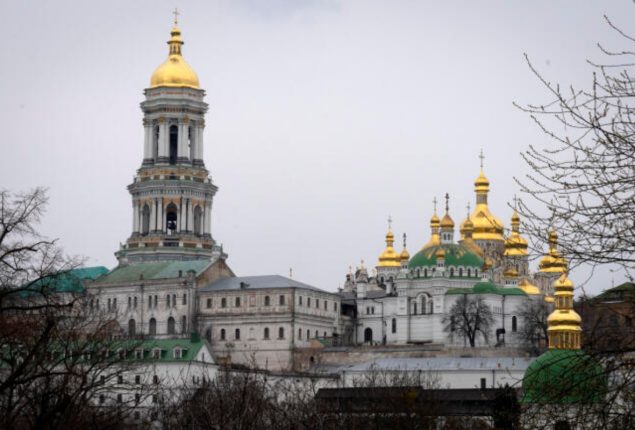Ukraine opens military facility in Kursk region and claims progress
Ukraine's Top Commander Announces Military Commandant's Office in Russia's Kursk Region Forces...

Ukraine parliament votes to ban Russia-linked Orthodox Church
Ukraine’s parliament voted Tuesday to ban the Russian-linked Ukrainian Orthodox Church, a move Kyiv says bolsters its independence as it severs ties with institutions it views as aligned with Moscow. Kyiv has been working to weaken spiritual connections with Russia for years, a process hastened by Moscow’s 2022 invasion, which was supported by the influential Russian Orthodox Church.
A majority of Ukrainian lawmakers approved the bill outlawing religious organizations tied to Russia, primarily targeting the Moscow-linked Ukrainian Orthodox Church (UOC). Zelensky stated that the ban would enhance Ukraine’s “spiritual independence,” and MPs celebrated the bill as a historic step.
Russia condemned the move, calling it “illegal.” The Russian church has expressed strong anger over a 2019 schism that led to the creation of an independent Ukrainian Orthodox Church, which remains spiritually loyal to Istanbul-based Patriarch Bartholomew. Zelensky, who must still sign the bill for it to take effect, announced that he will discuss the matter with Bartholomew’s representatives in the coming days.
Implementing the ban may take years, causing concern among followers of the Ukrainian Orthodox Church. Although the Moscow-backed church in Ukraine officially severed ties with its Russian counterpart in 2022, some lawmakers have accused its clerics of collaborating with Russia.
Russian Orthodox Church spokesman Vladimir Legoida condemned the vote as “an unlawful act that is the grossest violation of the basic principles of freedom of conscience and human rights.”
In Kyiv, believers prayed outside the Russian-affiliated section of the historic Kyiv Pechersk Lavra monastery, a regular practice since the area was closed to the public last year.
“There’s no politics here. We just come and pray for our children and our loved ones… I’ve never seen any KGB agents,” said 56-year-old Svetlana, who declined to give her name due to the sensitivity of the question.
Wearing a lilac dress and matching headscarf, Svetlana expressed her concerns about the potential full closure of the church where she had been baptized and married.
“If they close, people will still pray in the streets, maybe we’ll put up tents, there will be prayers anyway,” Svetlana said.
The schism between the Ukrainian and Russian-linked Churches began with Russia’s annexation of Crimea in 2014 and the subsequent war between Kyiv and Moscow-backed separatists in the east. In 2019, the Istanbul-based head of the Eastern Orthodox Church granted autocephaly—religious independence—to the breakaway Orthodox Church of Ukraine (OCU), separating it from the Moscow Patriarchate.
The split has impacted church attendance in Ukraine. In the Ukrainian-affiliated section of the Lavra monastery, which remains open, 21-year-old Igor said:
“Everything is political. There can be no such thing as art, sports, or even religion outside politics.”
“I support this ban,” he said, accusing the Russian Orthodox Church of being a Kremlin agent that “has metastasized so much that we will be fighting it for decades.”
The bill was hailed by many Ukrainian politicians.
“There will be no Moscow Church in Ukraine,” Andriy Yermak, Zelensky’s chief of staff, said on Telegram.
Catch all the International News, Breaking News Event and Latest News Updates on The BOL News
Download The BOL News App to get the Daily News Update & Follow us on Google News.